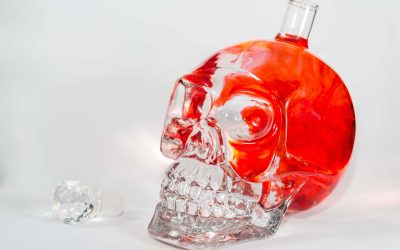Over time, you may experience a range of health issues, including heart disease, liver damage, respiratory problems, and mental health disorders such as depression and anxiety. It’s vital to recognize that these health complications can lead to a diminished quality of life and increased need for medical care. Alcohol is legal and socially acceptable for people over the legal drinking age, which varies by country, and is cheap and accessible. Many people use alcohol responsibly, but that doesn’t mean it’s not addictive.

Rise In Dopamine Levels
- Withdrawal symptoms range in severity based on the type of substance and tolerance.
- It could also help you provide support in case you have a loved one who suffers from substance use disorder.
- Other neurotransmitters, such as serotonin and endorphins, also play crucial roles in addiction.
- Recovery Resource Center has gathered together the ultimate information to move you forward in your recovery.
- Methamphetamine (meth) is a highly addictive stimulant that affects the central nervous system and can be consumed in many ways, contributing to its potency and potential for abuse.
Opiates and opioids can be classified as narcotics, but just branches of the “narcotic tree.” Many of the drugs listed in this article will be classified as opioids. Many of the people addicted to these substances have been prescribed them by a doctor, making most addictive drug this list especially important if you have the need for a prescription. The terminologies used to describe the most addictive drugs are often muddled, with one word being used to describe many drugs and few people understanding the differences. The study found cocaine to be the most addictive substance based on its powerful affect on the brain.
- Methadone is intended to help control cravings for Heroin and narcotic painkiller-dependent individuals.
- Alcohol addiction is something else that we can help with at Grand Falls Addiction Treatment Center, so get in touch if you think you might have a problem.
Jumpstart Your Recovery Today
Once the opioids slow down the GABA neurons, dopamine floods the brain’s pleasure circuits, resulting in a wave of pleasure and pain relief. These effects reinforce the idea in the brain that taking opioids is a rewarding experience, leading to increased use and addiction. Consequently, cannabis may not lead to physical dependence, but it can still affect your mental health. Some users experience increased anxiety or paranoia Sobriety with overuse, while others find therapeutic benefits. It’s important to weigh the positive effects against potential risks, keeping in mind personal tolerance levels and any pre-existing mental health conditions. Consider using cannabis judiciously to enjoy its benefits while minimizing adverse consequences.

Cannabis
Heroin is a highly addictive opiate drug made from morphine, a principal component of opium. It’s often found as a white or brown powder and a sticky black substance known as “black tar” that can be sniffed/snorted, smoked, or injected. As a depressant, heroin slows down the functions of the brain and nervous system. Around you, substance abuse can wreak havoc on social relationships and economic stability. Friends and family may become strained or lost due to your addiction, leading to isolation. Economically, you may face job loss or reduced earning potential, which compounds the stress of your addiction, making recovery even harder.

This will then lead you to want more and more of the substance until you become addicted. Once you become dependent on these substances, they can also send you into an emotional overdrive, causing anxiety and stress. In the world of substance use and addiction, one question continues to perplex experts and laypeople https://dailydissent.org/wrinkles-lines-and-damage-substance-abuse-effects-2/ alike – what is the most addictive drug? This isn’t a simple question but rather a complex puzzle that unravels the intricate workings of the human brain and body under the influence of various substances.
